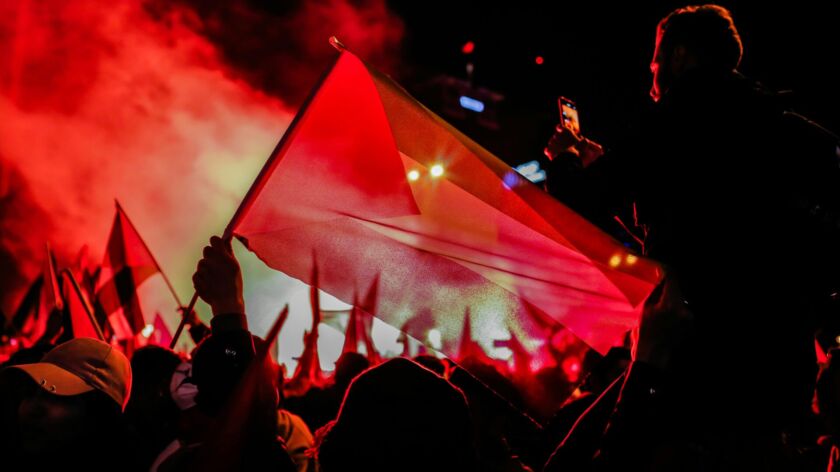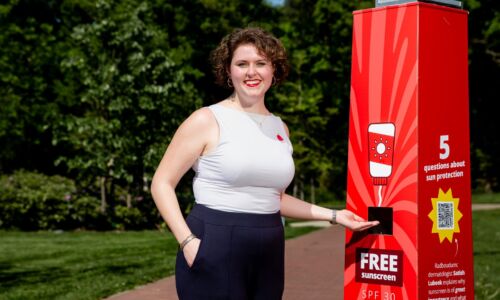Why the West just can’t get a grip on the Middle East: ‘Our focus is too much on religion’
-
 Foto: Ömer Faruk Yıldız (via Pexels.com)
Foto: Ömer Faruk Yıldız (via Pexels.com)
Middle Eastern countries seem to be rolling from one conflict to another. A good reason for Radboud Reflects to ask four scholars for their insights into the tensions in the region. Arabist Maurits Berger is first up. 'The Palestinians are probably entering the darkest period of their history.'
As Gaza’s destruction continues apace, Syria’s new rulers are trying to re-establish normality in their country. Meanwhile, the truce between Israel and Lebanon is coming to an end and Donald Trump is about to be inaugurated as US president. He is already threatening that “all hell will break loose” if Hamas does not release all the Israeli hostages before his inauguration.
The eyes of the world will therefore continue to be on the Middle East in the coming period. For that reason, Radboud Reflects has organised a series of current affairs lectures on the region. In the first lecture on 22 January, Maurits Berger, professor of Islam and the West at Leiden University, will explain which historical developments have made the Middle East the region it is today.
Quite a challenge in 45 minutes. What is the key message you want to convey?
“In Europe, we tend to regard Arabs as a homogeneous group. But I always emphasise: Moroccans are not Syrians and Egyptians are not Iraqis. Obviously, there is a certain connection, but that applies to Europeans too. All countries have their own story.
“Again and again, we Europeans are taken completely by surprise by major developments in the region. Take the fall of Assad, for example. Afterwards, experts frantically search for explanations for the developments in this supposedly unfathomable world. But I don’t look at it like that: Arabs are just people too.
“Over half the population in the Middle East is under the age of 15”
“Yet we continue to look for the typical ‘Arab’ and come up with terms like tribalism and sectarianism, or explaining everything that happens there in terms of religion. You see that happening in science too. That results in a distorted view of things.
“On the other hand, I notice that many students and colleagues seem to feel that the West is to blame for all the misery there. Obviously, the West has played a massive role, now and in the past, but we shouldn’t pretend that the people there do not influence their societies and their politics.”
The newspapers are full of Gaza, Israel, Lebanon and Iran. What do you feel is important to consider to help us understand all these events?
“The youthfulness of Middle Eastern countries. They are almost all young states in the modern sense; not long ago they were colonies. Many of those states are still finding their way.
“And their population is young too. More than half the population in the Middle East is under the age of 15. All those young people are educated, can read and write. They have access to information. And that brings a certain empowerment. The regimes realise that. That produced the Arab Spring. At the same time, the job market is also crowded. It isn’t easy for people to find jobs.”
And what is Israel’s role?
“Israel is like a ticking bomb between those Arab countries. Its neighbours regard it as a European colonial project. In supporting Israel, Europe is seen as having dumped its long tradition of antisemitism in the Arab world. It is the ultimate injustice and for Arabs an important moral framework, similar to the significance of the Holocaust for Europeans.”
Has the way that we in Europe look at the Israeli-Palestinian conflict changed?
“First of all, the West’s focus has traditionally been very much on Israel. There have always been a lot of contacts between Europe and Israel, the Middle East correspondents were all there and the kibbutzim (collective living communities in Israel, ed.) have long been romanticised. For a long time, we really weren’t aware that Israel’s origin was interpreted very differently in the surrounding countries.
“Trump is threatening Hamas with unleashing hell on earth in Gaza, but that has long since happened”
“In our interpretation of what is happening in the Middle East, our emphasis has shifted much more towards religion. Also in the Israeli-Palestinian conflict. In fact, it is a conflict about the right of existence of two peoples on a piece of territory.”
How will Donald Trump’s second term impact the Middle East?
“What we need to take into account is that Trump will allow the definitive annexation of occupied territory by Israel. That will be much easier now that so many people have already been swept out of Gaza. He threatened Hamas with unleashing hell on earth in Gaza, but that has long since happened. At best, he can give his blessing to Israeli violence.”
What does that mean for the Palestinians?
“They are probably entering the darkest period of their history. At the same time, you cannot let more than 4 million people in the occupied areas just disappear. How do you get rid of them? You can’t just do that. The question is how that will be resolved.”
Are you more optimistic about Syria’s future now that Assad has been ousted?
“I worked in Damascus for four years. We all knew about the existence of the most barbaric torture chambers. So, I’m delighted that Assad is gone, but the situation is now perilous. Now is the time for Syrians to get it right. It could still go either way.”
Following Maurits Berger on 22 January, there will be current affairs lectures by political scientist Bertjan Verbeek on 30 January, religious scholar Heleen Murre-van den Berg on 6 February and political scientist Nora Stel on 11 February.




